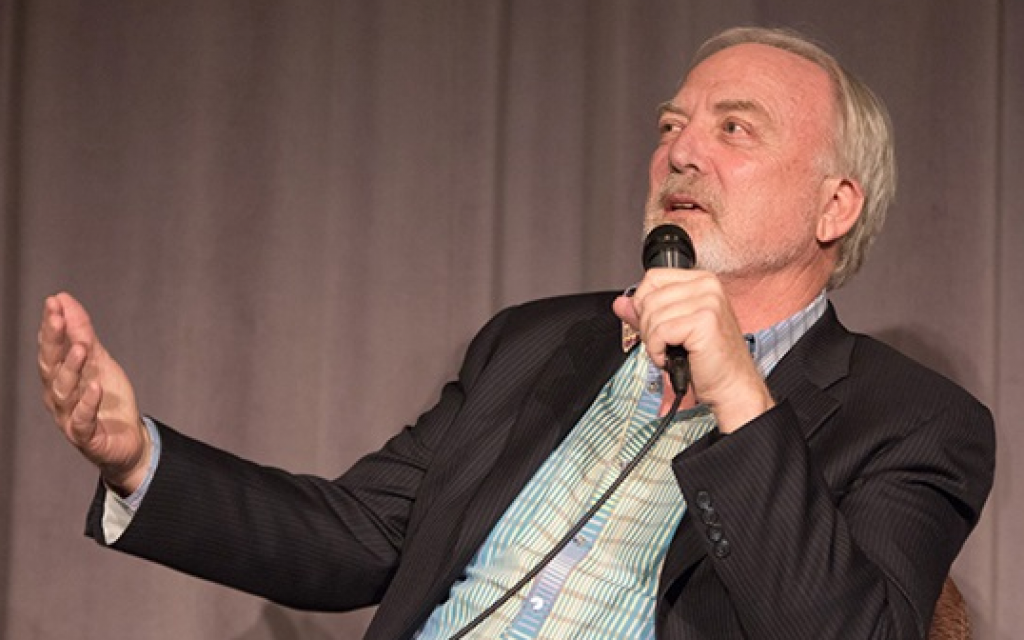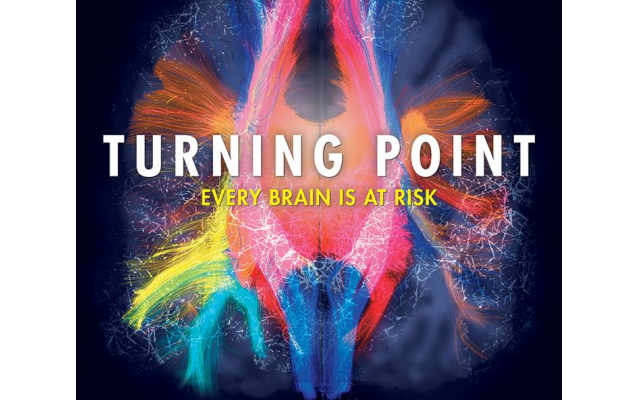Alzheimer’s Documentary Spotlights New Research
“Turning Point,” a new documentary, is generating interest in the importance of clinical trials in drug research.
“Turning Point,” a new documentary following researchers as they edge closer to finding a treatment for Alzheimer’s disease, is generating interest in the importance of clinical trials in drug research.
The film has been shown at a number of film festivals around the country, and in Boston, where it won three awards, including best documentary. On Tuesday it was shown in a program sponsored by Emory University’s Goizueta Alzheimer’s Disease Research Center, whose director, Dr. Allan Levey, the AJT profiled earlier this year.
The documentary follows researchers through the challenges of the rise and fall of a new drug, solanezumab, developed by Eli Lilly and Company. It had looked highly promising for people with mild symptoms of the disease. Early tests seemed to show that the drug might be able to clear the body of collections of what are called amyloid proteins. They develop in the brain and cause brain cells to die and create memory loss.
The drug was the first to show that it might work on the underlying process of how the disease develops, particularly during the early stages of the disease, rather than merely slowing the symptoms of the disease.
The development of the drug was the result of what had been pioneering research more than 20 years ago that showed that mice with symptoms of Alzheimer’s dramatically improved when the amyloid plaque build-up was removed.
Finding a way to remove that build-up has driven much of the so-far unsuccessful research, including the failure of the new drug, solanezumab, which is chronicled in “Turning Point.”

Today an estimated 5 million Americans are living with Alzheimer’s. If nothing is done, in the next 30 years, that number is expected to triple.
The nonprofit, BrightFocus Foundation, which is the presenting sponsor of “Turning Point” screenings around the country, estimated that nearly 500,000 new cases of Alzheimer’s disease will be diagnosed this year in the United States. Every 3 seconds, someone in the world develops dementia.
Just last month, clinical trials for yet another promising drug called aducanumab, were also halted. A leading researcher noted that the drug was so promising at one point that research and testing was being accelerated. The hope was that, like the earlier drug featured in the documentary, it could rid amyloid proteins from the brain as well as improve cognitive function.
Part of the problem in creating new treatments that target these proteins is that the development of the amyloid deposits begins a decade or more before symptoms appear.
By the time doctors see patients who are having memory problems, their brain may already have begun to atrophy. By then, some researchers have concluded it may be too late to start treatment.
Dr. Rudolph Tanzi, the son of Jewish refugees from Poland and Palestine, is a prominent Alzheimer’s authority at Massachusetts General Hospital and Harvard Medical School. He reportedly concluded that targeting the amyloid deposits is like trying to put out a forest fire by putting out the match. It is thought that no treatment can bring back the brain cells that are lost.
Prevention through genetic testing and treatment is his controversial approach to treatment.
To truly stop Alzheimer’s, it is felt, doctors must head off those beginning to develop Alzheimer’s dementia and redirect them, much as physicians today measure blood cholesterol levels and, if necessary, prescribe cholesterol-lowering drugs to avert a heart attack.
That can only happen if future research is aggressively supported and there is an adequate number of participants in clinical studies.
According to America’s Alzheimer’s Association, the world’s largest funder of Alzheimer’s research, recruiting and retaining trial participants is now the greatest obstacle, other than funding, in developing future Alzheimer’s treatments. Every clinical treatment, it is felt, contributes valuable knowledge, whether the treatment works or not.
As the documentary shown at Emory Tuesday demonstrated, the success of the more than 250 studies that are now focused on Alzheimer’s and other dementias depends on having access to those willing to participate in the studies.
The production of “Turning Point” is the latest project developed by actor-turned-documentary filmmaker James Keach, whose previous film was “I’ll Be Me.” It was about the struggle by the late singer, Glen Campbell, to cope with the effects of memory loss. The production was filmed during his final “Goodbye Tour.” That film was nominated for an Academy Award and won three Grammy Awards.
Further information about the “Turning Point” documentary and how to schedule a screening is available at www.turningpointfilm.com.




comments